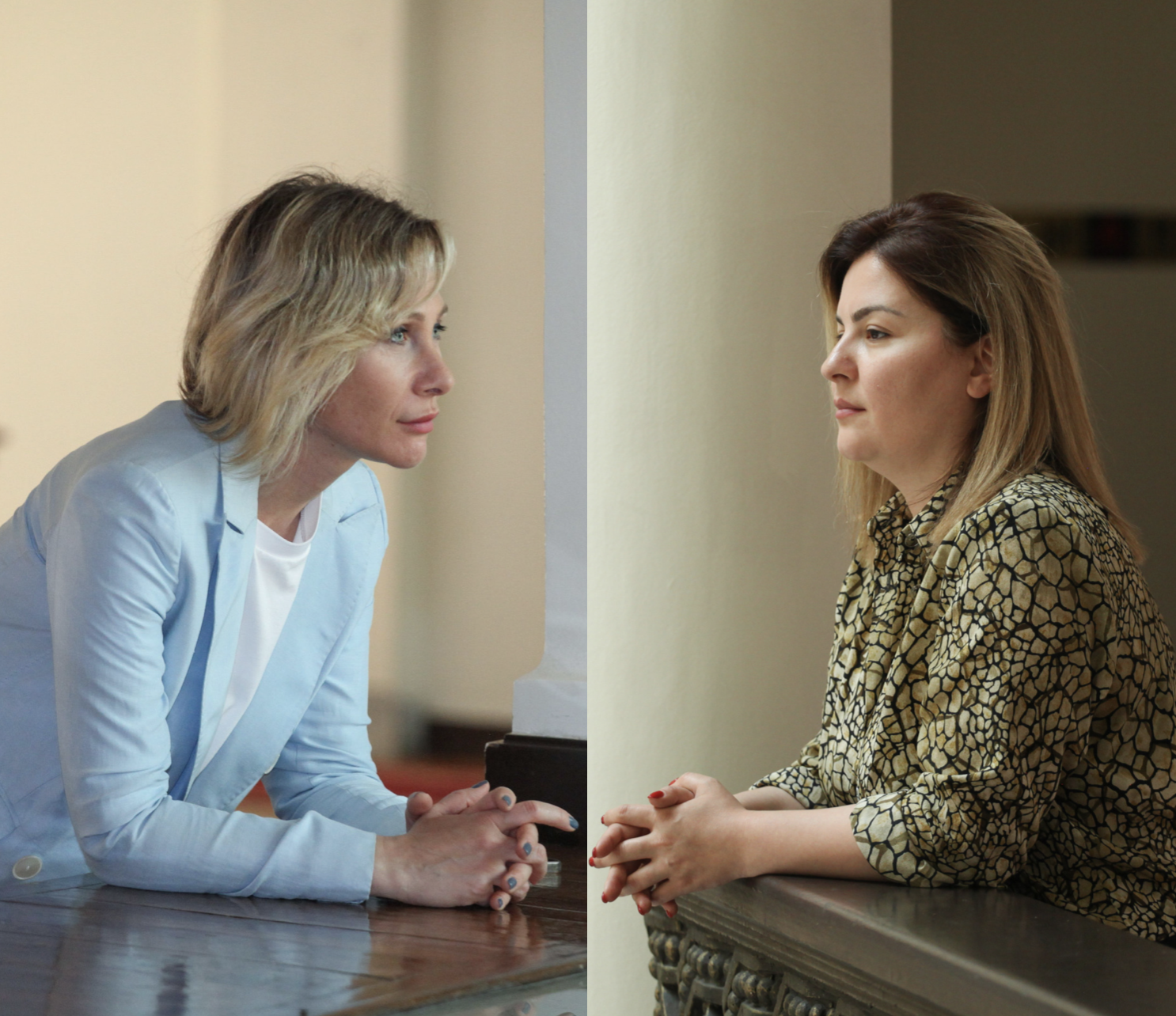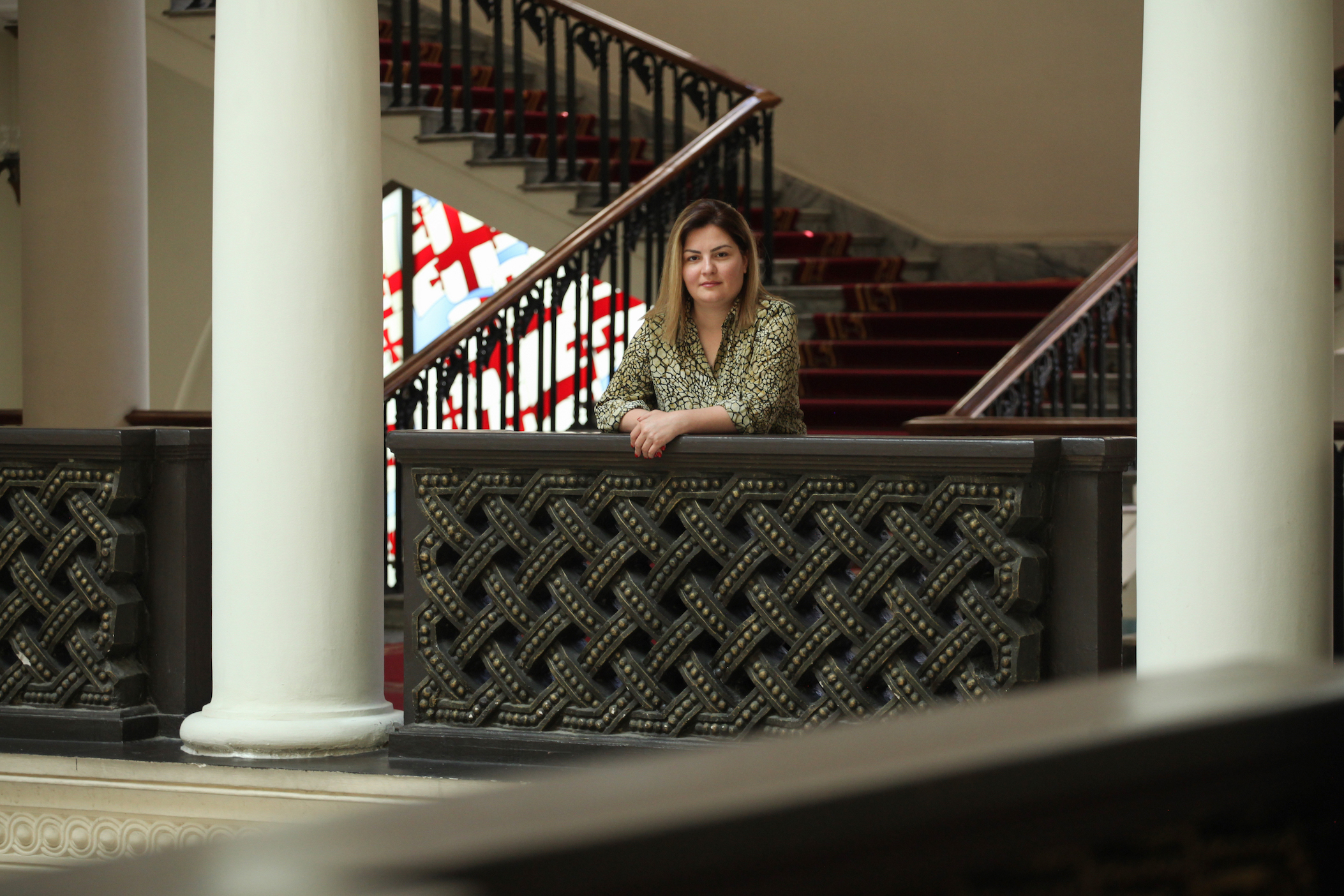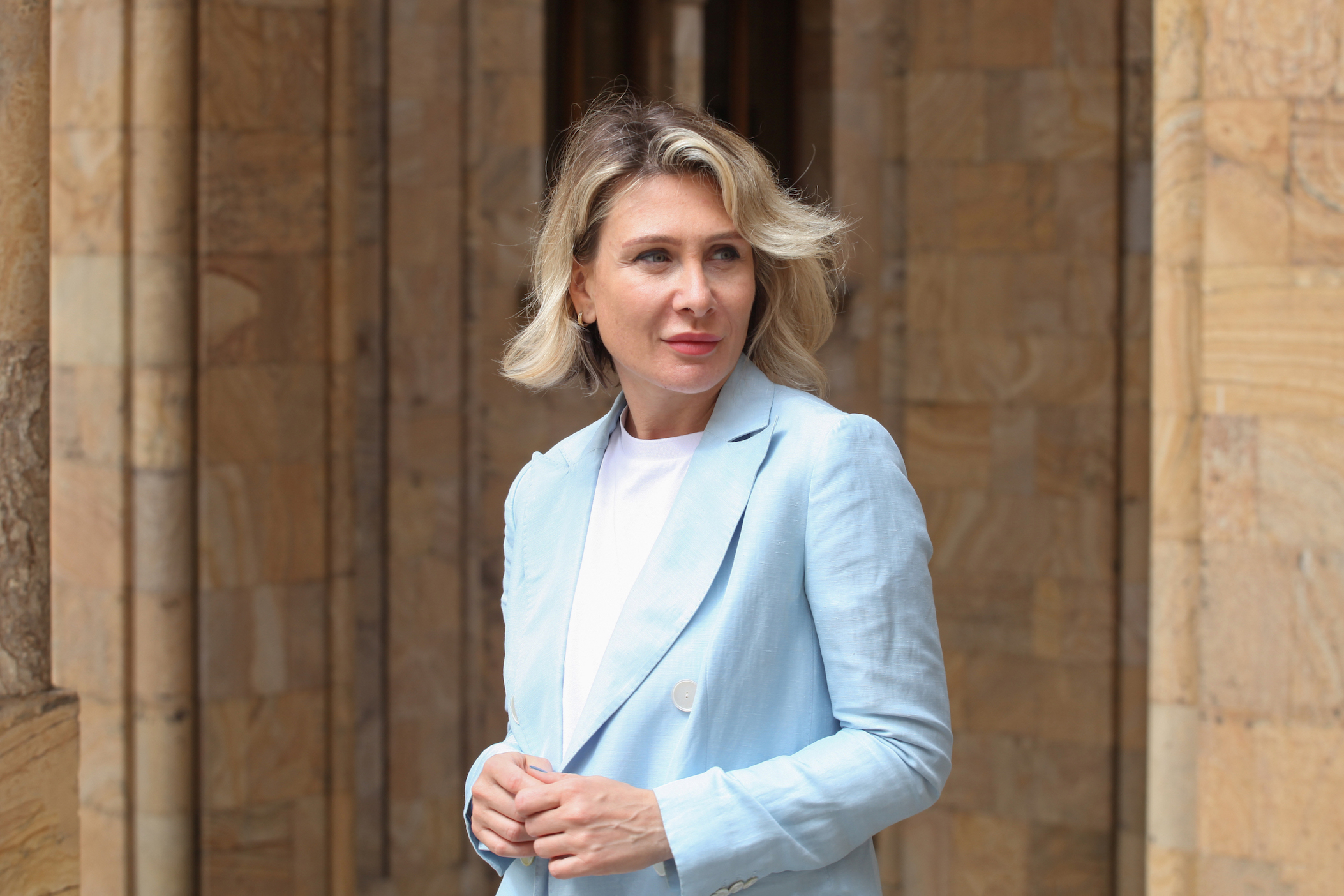Two sides, one goal: consolidating power for gender equality
June 29, 2022

Two MPs from Georgia, Ana Natsvlishvili from the opposition party, Lelo, and Nino Tsilosani from the ruling party, Georgian Dream.
In the 2020 elections in Georgia, women increased their share of seats in parliament from 14 to almost 20 percent.
This was the highest it had ever been. But it is not enough, say two MPs, Ana Natsvlishvili from the opposition party, Lelo, and Nino Tsilosani from the ruling party, Georgian Dream.
Both women acknowledge the role of gender quotas, introduced in the last parliamentary (2020) and local elections (2021), in breaking the decades-long underrepresentation of women. “If it wasn’t for gender quotas, political parties would not have put talented and competent women on electoral lists,” says Natsvlishvili.
Tsilosani says women’s political participation is linked to their economic empowerment. “Sixty percent of Georgian women are left outside the formal labour market. This means that they are neither employed nor looking for a job. Imagine what a gain it would be for the economy if we could get them to employment and economic activity. We must offer women services and support to help them become active and contribute to the country’s economic growth.”
Women cannot make a meaningful impact on decision-making with just a fifth of all seats in Parliament and unequal access to economic resources. Georgia needs more women in politics to overcome inequality and bring a diversity of perspectives into the agenda. However, as both MPs point out, women face tougher barriers than men in politics. Getting elected is just the first step. They must constantly fight discriminatory attitudes and gender roles.
“On many occasions, I thought – they would not dare to do or say that if I was a man. When I travelled to Ukraine’s war-stricken Bucha and Irpin as part of the parliamentary delegation, people kept telling me that as a woman, I could have left such a dangerous mission to men,” remembers Natsvlishvili.
In Eastern Europe and Central Asia, the average share of women in parliament rose from 25.2 percent in 2020 to 27.1 percent in 2021.
These numbers are still below the 30 percent threshold considered to be the minimum for women parliamentarians to change law and policy. To accelerate progress, it is vital to understand the fundamentally different journey and challenges that many politically active women face. Many are by now well-known: limited access to campaign financing; misogyny at both the individual and institutional levels; gender stereotypes, and threats to physical safety.

Natasvlishvili says hidden discrimination is also an issue.
“As a mother of two, I know how difficult it is to combine my role as a public person with parenting. The political process is often spontaneous, with important meetings being scheduled after office hours, sometimes at night. If you cannot attend these late-night meetings, you eventually become excluded from the decision-making process. When women raise this issue, the usual answer is that’s why women should stay home. But this is not a solution. The solution is to create an environment where women’s needs are considered and respected. Otherwise, politics and decision-making will lose women. Experience shows that decisions made without women are not good for anyone.”
The waves of criticism and dislike increasingly directed at politicians are a tough part of the job for every public person but hit women particularly hard.
“Men politicians also experience hate speech, but it takes heavier forms in the case of women,”says Tsilosani.
Gendered online hate speech, cyberviolence and harassment are increasingly serious obstacles to women candidates and leaders in politics. The disproportionate and often more intense criticism targeting women leaders risks driving many of them out of public and political life.
But there is also a silver lining.
“A decade ago, the general attitude could have been described as ‘politics is not a place for a woman’. Today, I hear a lot of positive feedback from the voters,”notes Natsvlishvili.
“They like that I am a woman politician, appreciate what I am doing and encourage me to strive for more.”
The change in attitude has come about because of long-term work carried out in the public space by brave and talented women, including women parliamentarians. This is why both MPs believe that solidarity among women politicians, regardless of their political orientation, is key.
“Strong as you are, you can’t do much if you are on your own. Women parliamentarians support each other even though we represent different political parties and disagree on many issues. When the political arena turns into a battlefield, women always try to stay away from the toxic area. We may have our distinctively different positions and opinions, but we don’t wage personal wars, which is something men often do. My experience proves that women can have a truly positive impact on politics, in both parliament and society,” says Natsvlishvili.
Tsilosani recalls how women’s solidarity helped drive the challenging process of adopting gender quotas in the electoral code. “As women MPs, we consolidated our power to pave the way for other initiatives. Georgia’s constitution guarantees equal rights and opportunities for men and women. This guarantee was the ground for introducing electoral gender quotas and other laws and policies aimed at levelling inequality. It’s an important legislative step but also a social and cultural stride towards gender equality.”
Before becoming a politician, Natsvlishvili was a well-known civic activist. A lawyer by profession, she was chairing the Georgian Young Lawyers’ Association when she decided to run for parliament in 2020, spurred by the desire to put her ideas into practice and have the means to make real change.

Tsilosani entered politics from a business background. She entered parliament in 2016 as a ruling party MP from her home region of Guria. For her, being a member of Parliament is an opportunity to represent the community and protect people’s interests.
What are their personal goals in parliament?
Tsilosani, who chairs the Permanent Gender Equality Council and the Agrarian Committee in Parliament, is determined to further raise women’s representation in politics and push for policies supporting women’s economic empowerment. Natsvlishvili wants to bring politics and politicians closer to the people, reorient politics from emergency-driven to proactive and strategic, bringing social, environmental, and urban development issues into the agenda.
Both women fight tirelessly for greater gender equality and inspire women to be more courageous and active. Both believe that women can bring success to their political parties and their country.
For more on the state of women in parliament in the Europe and Central Asia region, visit our Equal Future platform.

 Locations
Locations



